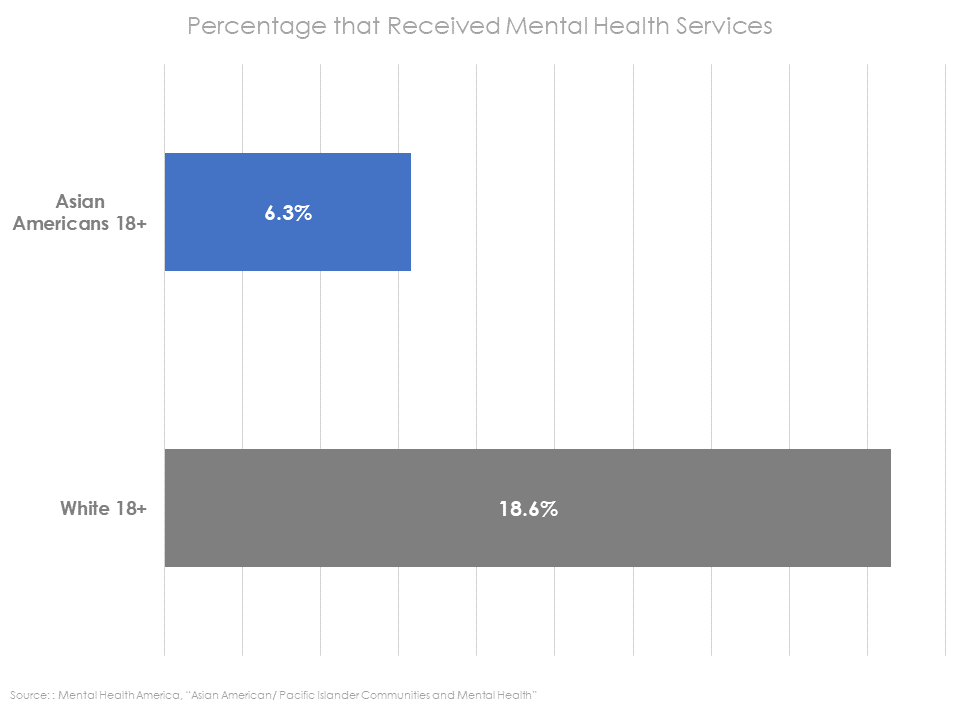The leading health issues among Asian Americans are cancer, heart disease, strokes and diabetes
6% of Asian Americans do not have health insurance
15% of Asian Americans experienced a mental illness
Asian Americans score relatively low in health literacy

LEADING HEALTH ISSUES
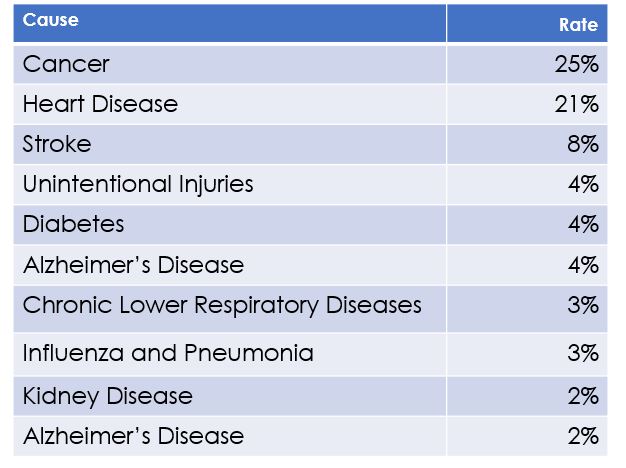
- 1 in 12 Asians Americans are chronically infected with Hepatitis B
- Asian Americans account for MORE THAN HALF the population infected with Hepatitis B
- OVER a THIRD of Asian Americans are undiagnosed with the infection
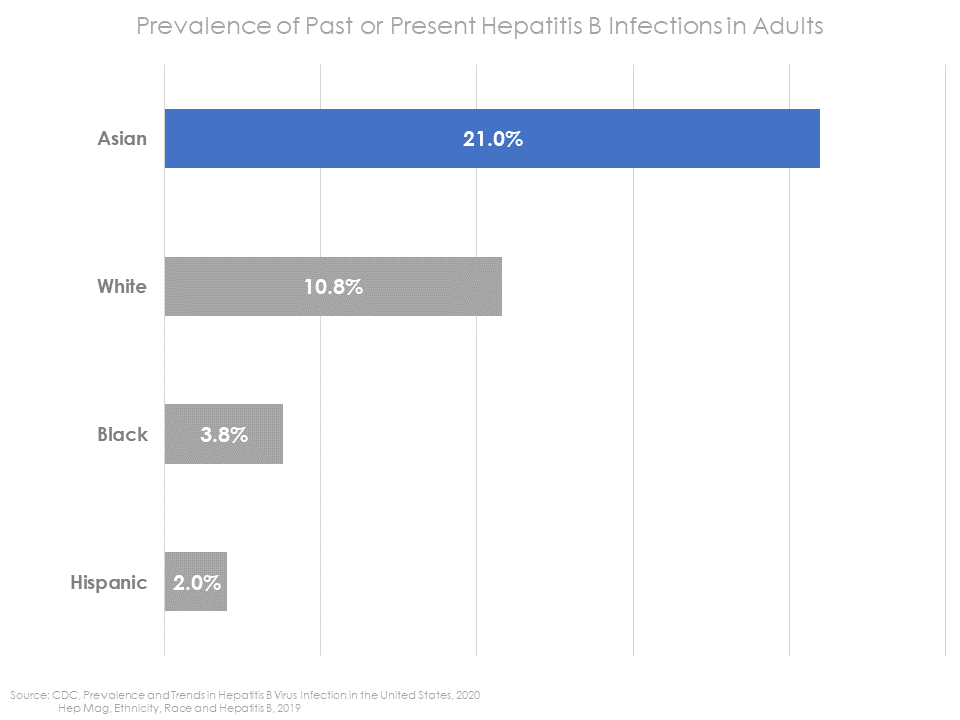
- Asian Americans are 5% more likely to have diabetes than white people.
- Almost half of Asian Americans with diabetes are undiagnosed.
- South Asian and Filipino Americans (between age 45 – 84) have the highest risk of diabetes compared to other Asian groups.

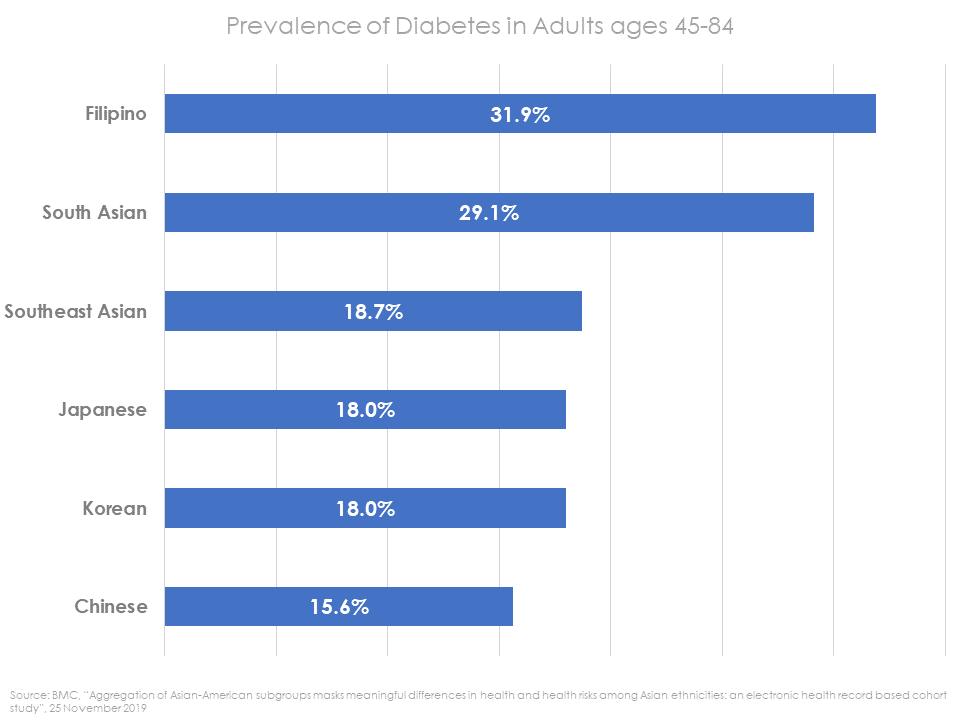
HEALTH INSURANCE COVERAGE
- In general, Asian Americans have the lowest uninsured percentage

- Korean Americans has the highest uninsured rate among all Asian groups
- Indian Americans have the lowest uninsured population

- By 2017, there is still a 5.6% uninsured gap between Asian Americans households below the poverty line and those well-over the poverty line
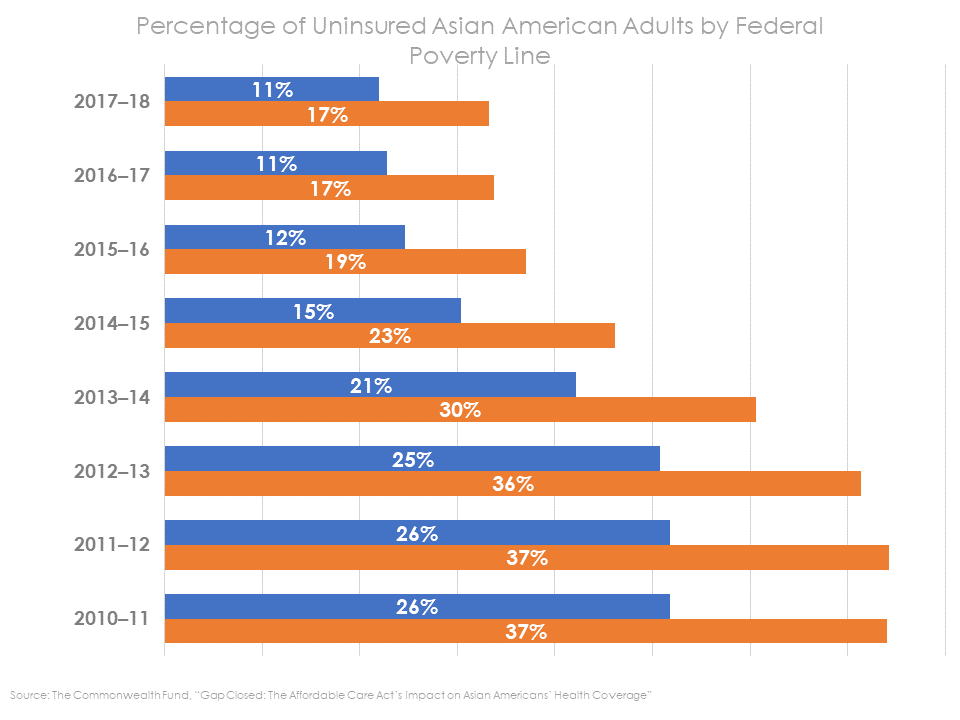
MENTAL HEALTH
- Asian Americans are 3x more likely to avoid mental healthcare in fear of others finding out about the treatment
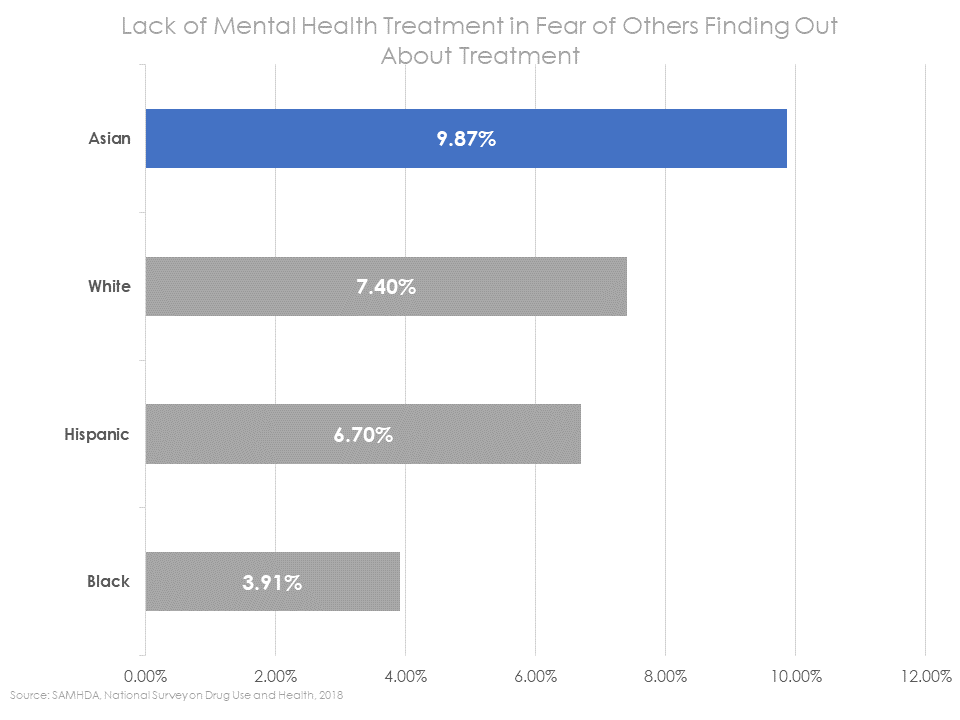
BARRIERS TO HEALTHCARE
A lack of mental health resources in non-English languages makes it harder for AAPI’s to seek treatment. Around 28% percent of AAPI's are not proficient in English, with 66% speaking a language other than English at home. The most common non-English language spoken at home is Mandarin/Cantonese, spoken by 34% of Chinese. Coming in second are South Asians with 13% speaking Hindi at home. Third is Tagalog at 9%.
Source: National Alliance on Mental Illness; Pew Research Center; The National Survey on Drug Use and Health
- Asian Americans scored relatively lower in health literacy
- Every 1 in 3 Chinese Americans still need help at least sometimes even when given the medical in Chinese
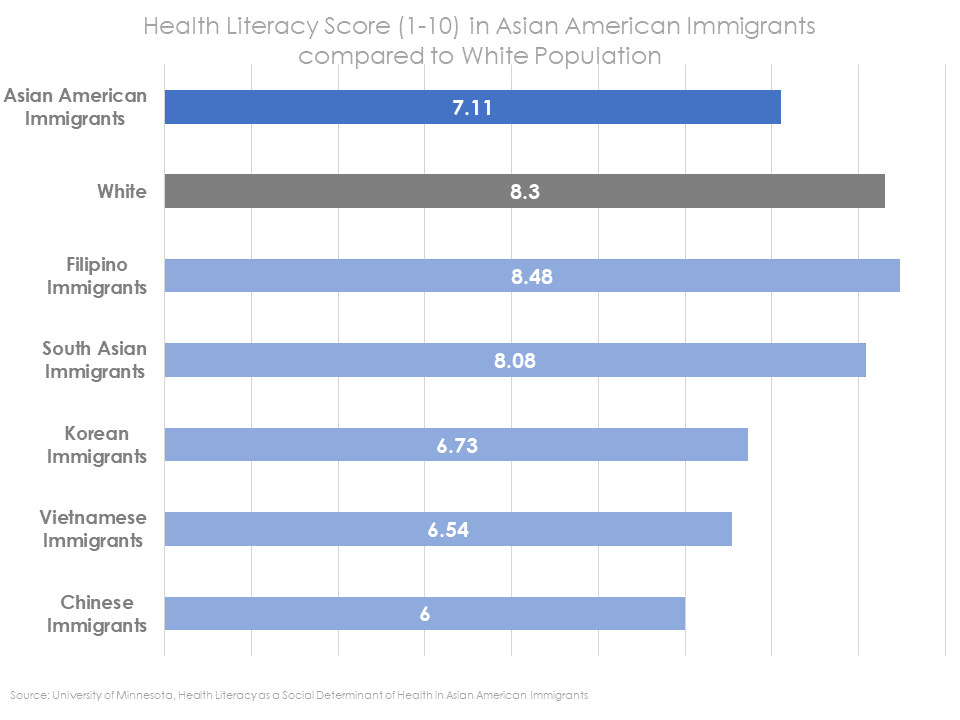
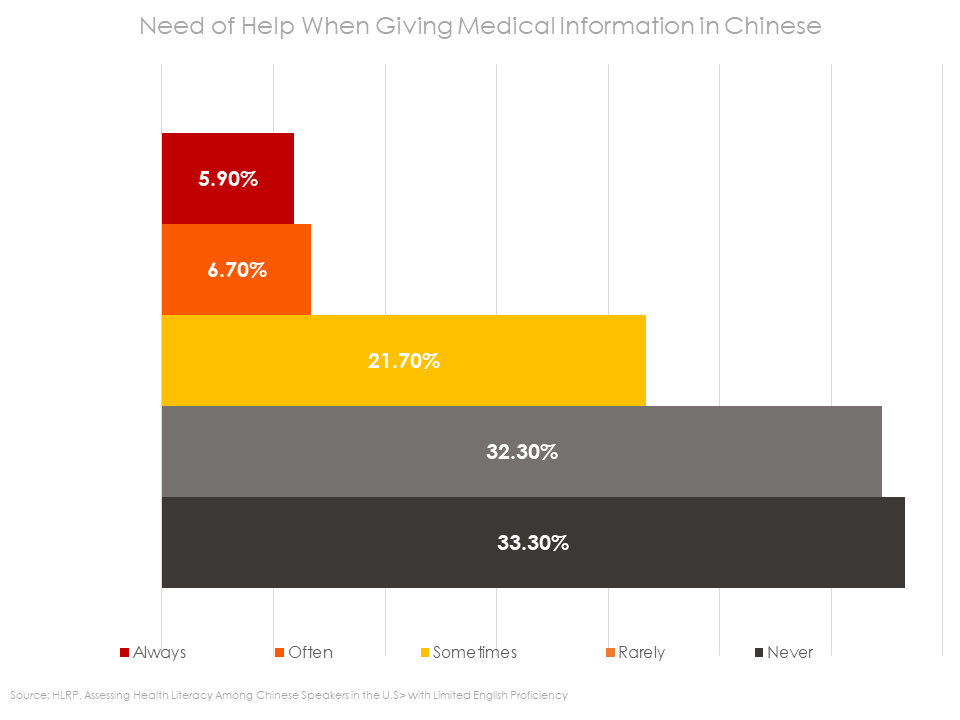
The stereotype that Asian Americans are well adjusted socially and economically may also play a part in reluctance to seek help. Other reasons also include lack of health insurance (7.2% of AAPI’s were uninsured in 2019), fear of jeopardizing their immigration status, and seeking non-western healing practices.
Source: National Alliance on Mental Illness; Pew Research Center; The National Survey on Drug Use and Health
